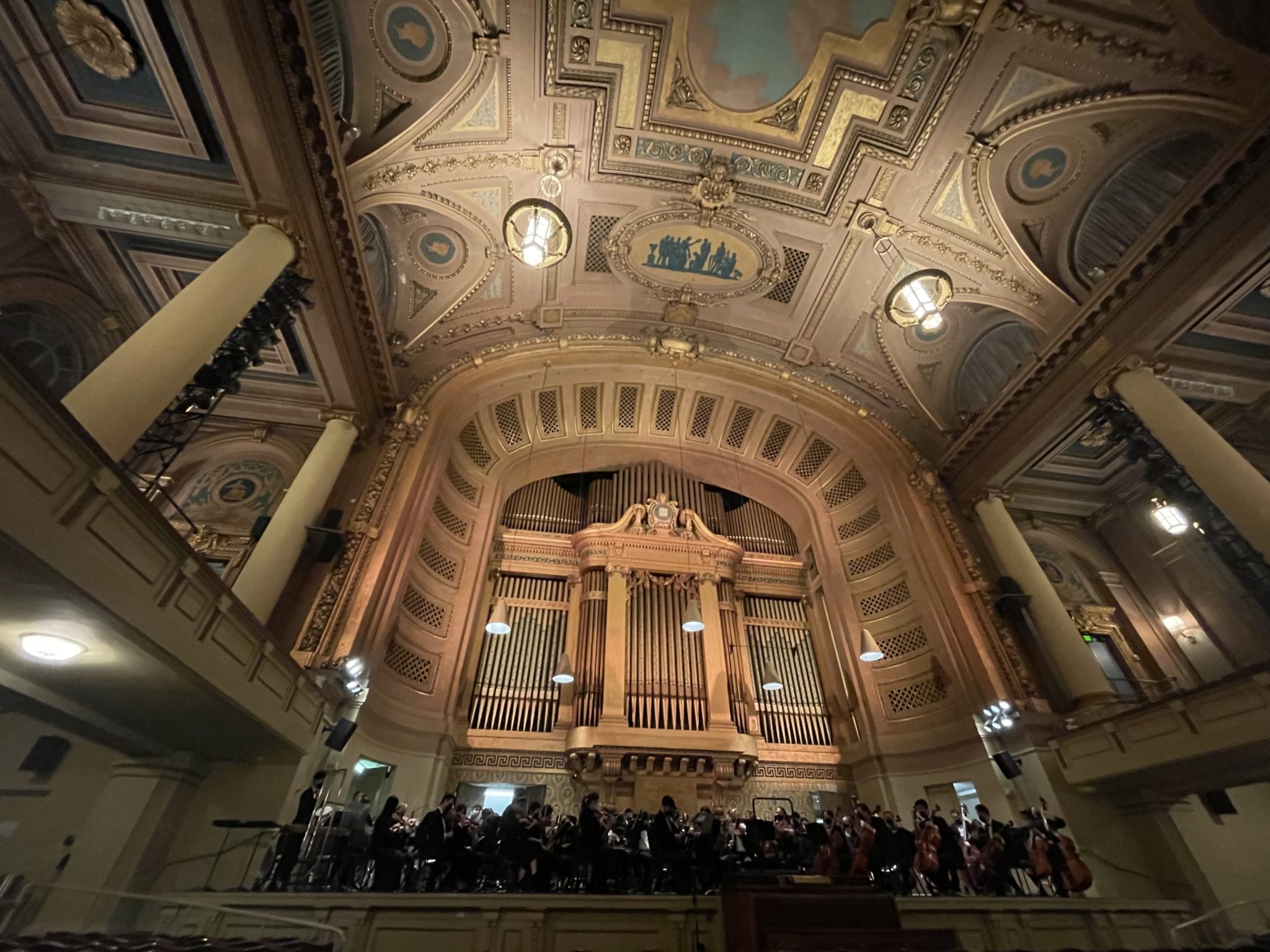Yale School of Music gives second concert of the year
Last Friday, YSM performed “The Oak” by Florence Price, “Symphony No. 6, H. 343 “Fantaisies symphoniques” by Bohuslav Martinů and Antonin Dvořák’s “Cello Concerto in B minor” with Christine Lee as the solo cellist.

Gamze Kazakoglu - Contributing Photographer
Yale Philharmonia gave a Friday concert in Woolsey Hall with music by composers Florence Price, Bohuslav Martinů and Antonín Dvořák.
The program opened with Price’s “The Oak,” followed by Martinů’s Symphony No. 6. After a brief pause, the performance concluded with Dvořák’s “Cello Concerto in B minor” which featured a solo from cellist Christine Lee MUS ’23, a prize winner of the International Isang Yun Competition and a top laureate of the Queen Elisabeth Competition.
“[Dvořák] had lost his sister-in-law, with whom he was very close,” Christine Lee said. “So [his concerto is] a farewell — saying goodbye and letting someone you love go. I think that’s an emotion that everyone can relate to, and I think that’s why it’s so powerful.”
Christine Lee also mentioned that the program’s inclusion of two Czech composers — Dvořák and Martinů — reflected the composers’ take on what American sounds and impressions mean for a Czech person. According to Christine Lee, this allows “fascinating” cultural exchanges to happen in a world with many dimensions and cultures, and music provides a means to “continue the dialogue” and spark “open conversations.”
The concert featured a solo opening by violinist and concertmaster Anna Lee MUS ’23 and a duet between Anna Lee and Christine Lee. According to Anna Lee, the program’s repertoire was “unusual in a good way,” which made the concert “really fun” for everyone on stage as well as for the audience. One of the concert’s unusual aspects was the inclusion of Martinů in the program, since according to Anna Lee, Martinů is an underplayed composer and Symphony No. 6 isn’t played often due to its shortness. As for the other composers on the program, Anna Lee said that Florence Price was an “incredible” composer, yet “history has done her wrong” as a Black individual living in America in the early 20th century.
“With the Black Lives Matter movement, I think racial concerns have become more prominent in this country since COVID-19,” Anna Lee said. “There is definitely a more concerted effort in the classical music industry to pay more attention to incredible composers who were ignored just for the color of their skin historically. I think, for us, it is an amazing opportunity to realize how much amazing music out there we might not even have access to.”
Anna Lee also mentioned that it was her first performance since February 2020 due to the pandemic. The program’s “unusual” repertoire was “unexplored territory” for the performers, which, combined with the energy of performing after a long break, created a “nerve-racking” performance atmosphere.
For Anna Lee, performing with masks obscured facial cues and body language, which forced her to be more expressive in her physical cues to fellow performers.
According to Anna Lee, Martinů’s piece has a very “different vocabulary” and is filled with dense and complicated textures. Woolsey Hall was significantly below capacity during the performance since the only people allowed to attend the concert in person were students, faculty and staff from the Yale School of Music and Yale Institute of Sacred Music. Playing in Woolsey, which is acoustically a naturally boomy hall, with a limited audience made the sound echo for around three seconds whenever the performers stopped playing.
An audience member, Alina Pong, also discussed the change in acoustics.
“As the player, I think the timing would be really difficult for me to hear,” Pong said. “Although the timing of these pieces are really unpredictable, they were doing very well. I was curious because there are very few audience members here and the acoustics are very different than before COVID-19. But they did a great job according to me.”
Playing with masks was also a challenge, according to Christine Lee. She explained that even playing an instrument unmasked takes significant physical effort and with a mask on, playing a 40-minute piece feels like she is “running a whole marathon.”
Regardless, Christine Lee thought it was a “gift” for her to have this concert and an opportunity to share what she loves.
“Since the pandemic, I understood what a live concert meant to me.” Christine Lee said. “I’ve always enjoyed performing, but after it was taken away from me, I now know what it feels like to not have it. So I don’t take it as granted at all, and it means so much to me to be able to have a night like yesterday.”
Anna Lee said that the orchestra members were so “happy” and “grateful” to be making music together again in person. For her, live music performances are irreplaceable. The pandemic was difficult for the musicians as they “lost their voice” and were no longer able to communicate with each other as they normally did.
“When you’re on stage all together and you’re sharing this energy with one goal of making music together, there really is no other feeling like it,” Anna said.
The School of Music’s next concert will be on Nov. 18 at Woolsey Hall and feature pieces by Ludwig van Beethoven, William Grant Still and Samuel Barber.







